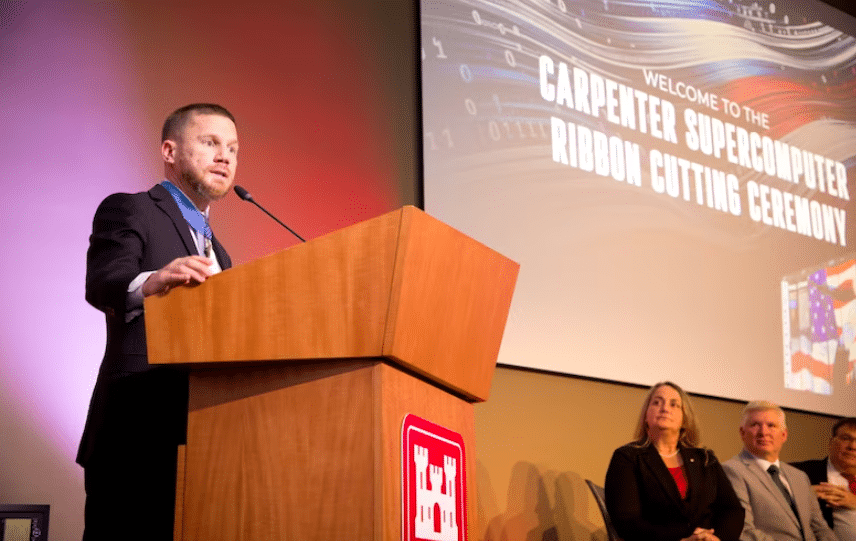A brand new supercomputer unveiled by the U.S. Army Engineer Research and Development Center (ERDC) in Vicksburg has been dedicated in honor of a Medal of Honor recipient from Mississippi.
The HPE EX 4000 was named after Corporal William “Kyle” Carpenter during a ceremony held at the organization’s Information Technology Laboratory.
ERDC is home to some of the world’s largest unclassified supercomputers. The latest supercomputer can perform nine quadrillion calculations per second and is fully equipped to enhance ERDC’s support of the U.S. Department of Defense’s most demanding computational challenges.
“With 277,248 AMD compute cores and 563 terabytes of memory, this new supercomputer will significantly enhance our ability to support the DoD’s most demanding computational challenges,” David A. Horner, director of ITL, said. “This acquisition marks a major accomplishment for our laboratory.”
Named “Carpenter” in recognition of the Flowood native and youngest living Medal of Honor recipient, the system was displayed to the retired Marine on Tuesday.
While serving in Afghanistan, Carpenter and a fellow Marine were manning a rooftop security position when they were attacked by hand grenades. Without thinking, Carpenter moved toward the grenade and shielded his friend from the deadly blast. He survived the attack and saved his partner’s life.
Three years ago, ITL decided to honor Mississippi-native Medal of Honor recipients by naming high-performance computing systems after these American heroes.
Carpenter shares his story with others through public speaking events and in his national best-selling book, You Are Worth It: Building a Life Worth Fighting For. On his podcast, The Kyle Carpenter Podcast, he interviews other inspirational people to encourage meaningful conversations on leadership, adversity, and finding a joyful purpose in life.
“It is so humbling to be recognized by and named after such a powerful and purposeful creation, that will be used to make our nation and world better and safer,” Carpenter said.
Carpenter’s image is stretched across the entire front of the machine, making this particular supercomputer more unique than most others at the ERDC.
“That was one of the most impactful hours of my life,” Carpenter said. “I thought I was going to look out and see a blank computer with nothing on it, and then I looked through that window, and I saw myself. But really, I saw our military and our nation and so many that have given so much and ultimately a moment for all of us, but for those that never made it home as well.”
ERDC’s first supercomputer arrived in 1990 and the Defense Department formed the High Performance Computing Modernization Program two years later. Since then, ITL has fielded some of the largest and most powerful supercomputers in the world.








